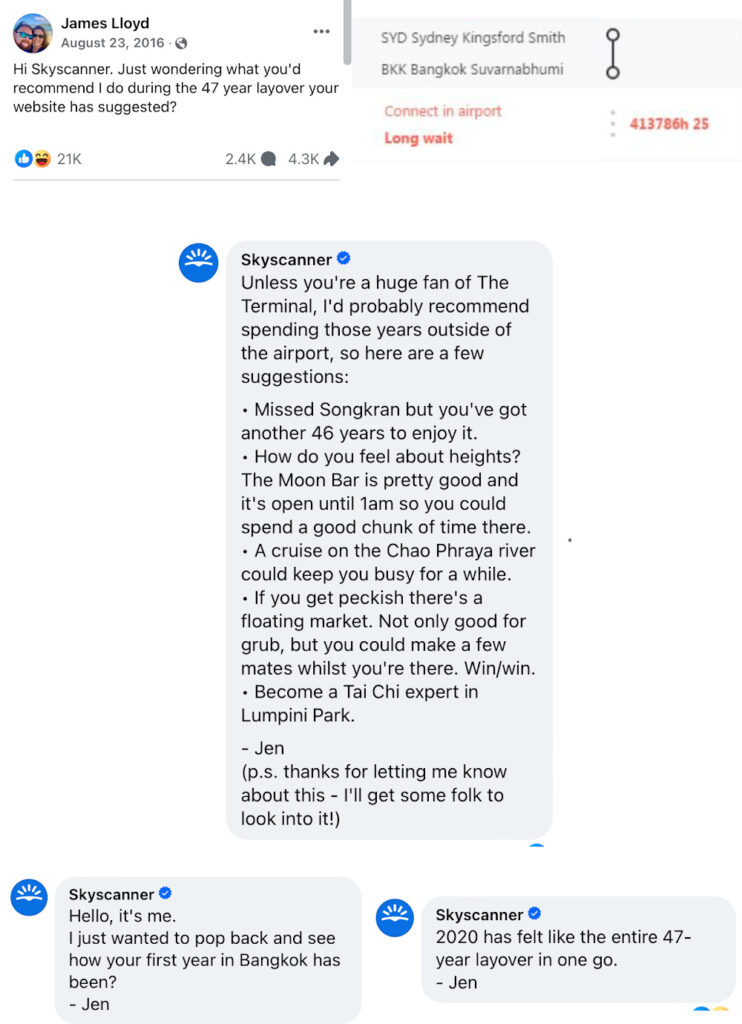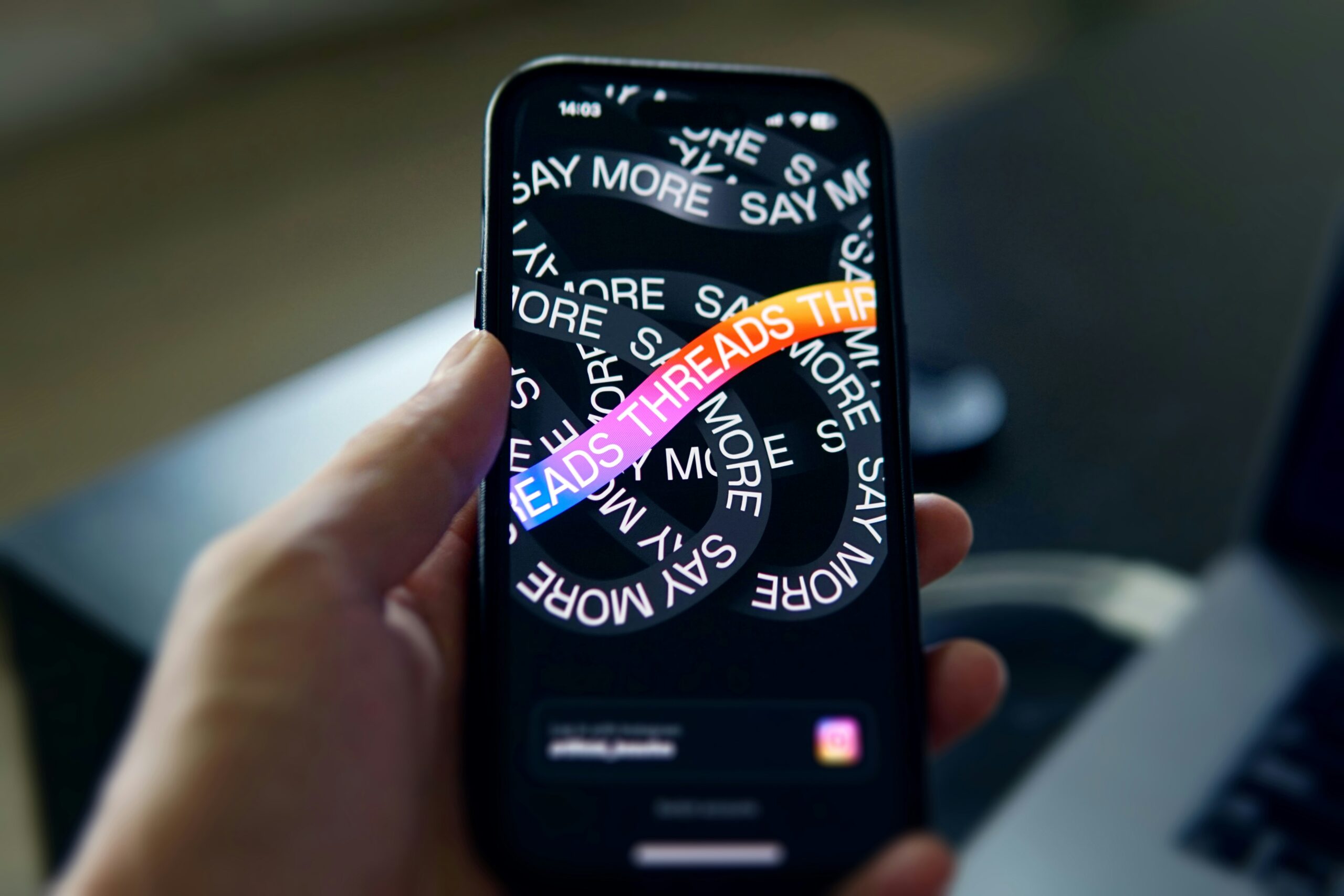
Social Factor
Finding Your Future at SF: Where Growth Meets Opportunity


Think about the last time you experienced bad service at a restaurant. Or maybe that time you brought home fast food only to find half of the order missing. What about when you went to a big box store, and instead of a person checking you out, you were forced to do self-checkout and stood there wondering, for just a bit, if you should be paid as a cashier? The question is: Did you call to complain, or did you turn to social media? You may have done both. And if the phone call didn’t fix the situation, chances are you went online next.
you were forced to do self-checkout and stood there wondering, for just a bit, if you should be paid as a cashier? The question is: Did you call to complain, or did you turn to social media? You may have done both. And if the phone call didn’t fix the situation, chances are you went online next.
According to Khoros, “About half of consumers who engage with brands on social media are reaching out about customer care concerns,” and over 65% expect a response, whether the message is public or private. Not only that, but the Sprout Social Index report states that nearly 70% want that response within 24 hours and 16% in minutes.
We live in an instant gratification culture, for good or for bad, and brands are expected to keep up. That’s why it’s imperative for them to have strong social care programs. Today, many forward-thinking brands take a company-wide approach to social care, encouraging collaboration across departments to address customer concerns online. This robust approach to social care is a worthwhile investment in your brand’s health.
At Social Factor, we believe every social engagement creates an opportunity to build a positive customer relationship that leads to brand loyalty and advocacy.
Communication delays, unhelpful responses, and just flat-out ignoring customers on social media can cripple a brand and make for bad reviews. When a customer posts a comment or question to a brand on social media, anyone can see it. They can also see how — or if — the company responds, amplifying one person’s experience to the masses. This is our reality now — customer service won’t go back to the way it was before.
So, how can a brand “earn the right” to continue the social conversation? In short, put community first.
It sounds simple, but it takes a serious commitment to social care and a brand that’s savvy enough to understand that its customers’ perceptions can shape its identity. A post on Brandwatch about the importance of brand perception says,
“Brand owners may feel like they understand exactly what their brand represents. However, this image may be more reflective of their aspirations for the brand rather than the reality of public opinion.”
An authentic connection between a brand and its customers can define its digital persona. Equally important is ensuring a brand doesn’t push its own agenda. If it does, its audience may dwindle. Today, customers expect brands to provide relevant content and information, quality customer support, and genuine engagement.
HubSpot says the really good ones are far above the rest when it comes to response time and quality of service online. It also notes that 71% of consumers are more likely to recommend a brand that provides a quick and effective response on social media. Nike and Spotify are two brands that take social care to the next level: Both maintain separate X accounts dedicated completely to customer support.
JetBlue is another great example of a brand that puts people and the customer experience first. Laurie Meacham, formerly of JetBlue, once said that the company’s social care representatives prioritize posts where they can contribute value. “We want our employees to engage smartly, and for the conversations to be organic and natural,” said Meacham. “We look for opportunities to add value and connect with our customers.”
With more than 2,600 X mentions every day, it’s no surprise JetBlue has people working hard to cover their social media accounts 24/7, reviewing every post that comes in. Impressively, their average response time is 10 minutes. Now, how’s that for earning the right?
This next example is from 2016, but it’s too great to not make the list. When Skyscanner user James Lloyd saw his travel itinerary suggested he take a 413,786-hour-long layover on a trip from New Zealand to London, he took to Facebook. Thankfully, Jen, a community manager for Skyscanner, offered a few fantastic solutions for the problem at hand:

Not only did Jen address the issue as it happened, but the company also sent James a care package to help him during his 47-year layover. It didn’t stop there. A year later, Jen checked in to see how James’s first year went and checked in again in 2020. Not every company can be expected to take social care to this level, but this is a fantastic example of what it can look like with a little creativity and a desire to truly put the community first. This also goes a step further by showing that social care doesn’t have to be boring to be effective.
What does all of this mean for you? Good customer care on social media helps your brand’s reputation thrive. But to do so takes a thoughtful social care strategy and an investment of time and resources.
We provide social care, engagement, and reputation management for some of the biggest brands in the world. If you need help figuring out how to make social care work for you, feel free to ask questions at any time: SocialFactor.com/contact.

Finding Your Future at SF: Where Growth Meets Opportunity

Transform your Digital Strategy by Using Tech and SaaS for Optimal Resource Utilization

Building Brand Loyalty Through Authentic Human Connection

Sail Through 2025 Social Media Budget Planning with Ease

How Brands Can Navigate Pre-Election Chaos on Social Media

Threads: Is It Worth It Yet?

Jack “Of All Trades” Dorsey Is No Longer on the Bluesky Board

Celebrating Diversity at Social Factor

Coachella 2024: What It Takes to Livestream the Festival on YouTube

How Fort Worth’s Social Factor Is Rocking ‘Human Connection’